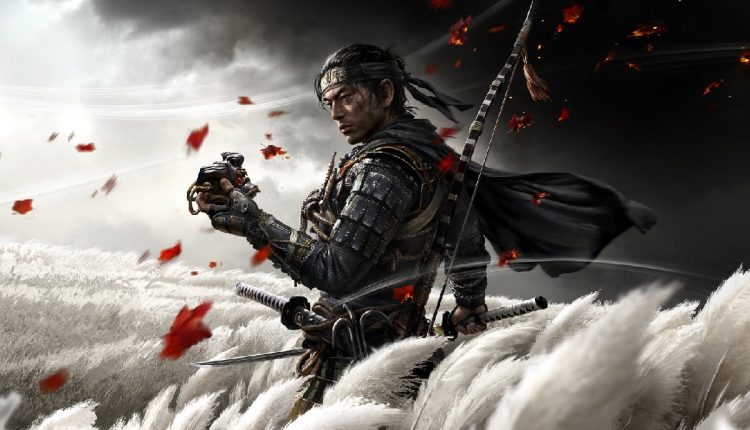A Journey That Stays With You
You ever finish a game and just… sit there? Staring at the screen, controller idle, your mind replaying every moment you just lived? That’s what Ghost of Tsushima did to me.
This isn’t just a game. It’s an emotional, cinematic, open-world samurai experience that punches you in the soul and rewards every second of exploration. From slicing through Mongol invaders with perfectly timed parries to composing haikus on windswept cliffs, Ghost of Tsushima is art disguised as a video game.
Story – A Tale of Honor, Loss, and Revolution
Set in 1274, the game throws you into the war-torn island of Tsushima, as it faces a brutal Mongol invasion. You play as Jin Sakai, a noble samurai turned ghost, who must walk the line between tradition and survival.
Jin’s journey is personal and philosophical — a clash between the honor of the samurai code and the harsh truths of war. Do you fight with honor and face certain death? Or abandon tradition to save your people by any means necessary?
It’s gripping. It’s heartfelt. And by the end, you’re not just playing Jin Sakai — you become him.
Combat – Precision, Power, and Pure Satisfaction
Okay, let’s talk combat. This is where the game absolutely shines. No button mashing. No floaty mechanics. Every fight in Ghost of Tsushima feels measured, tactical, and brutal.
Key Features:
-
Four Stances: Stone, Water, Wind, and Moon — each tailored to different enemy types. Switching mid-fight feels like a true swordsman adapting in battle.
-
Perfect Parries & Dodges: Master the rhythm, and you’ll feel like a true katana god.
-
Duels: Cinematic 1v1s that feel like they were ripped straight from a Kurosawa film.
And then there’s the Ghost abilities — smoke bombs, poison darts, chain assassinations — if you’re a stealth junkie like me, this part is addictive.
Open World – A Living, Breathing Samurai Poem
This is hands-down one of the most beautiful open worlds I’ve ever seen in a game. The island of Tsushima is not just eye candy — it’s alive.
No minimap clutter. Just wind guiding you to your next destination. Foxes leading you to shrines. Bamboo strikes that challenge your reflexes. Hot springs that heal your body and reveal your thoughts.
Sunsets that make you stop and stare. Thunderstorms that shake the ground beneath your feet. And fields of pampas grass where blades clash in silence.
This world doesn’t just beg to be explored. It deserves to be.
Side Quests & Characters – More Than Just Filler
Most games pad their open world with boring fetch quests. Not here. In Ghost of Tsushima, the side stories are often just as compelling as the main plot.
-
Lady Masako’s questline — pure revenge drama with heartbreaking twists.
-
Sensei Ishikawa — complex, stubborn, and full of regret.
-
Yuna, Norio, and Kenji — each bring their own weight to the story.
Every tale adds depth to the world and shapes Jin’s growth. You care. You invest. You remember.
Audio & Visuals – A Kurosawa Dream
Let’s take a moment to appreciate the score. Haunting flutes, deep taiko drums, and tension-filled strings. Whether you’re sneaking through a Mongol camp or facing down a rival in the rain, the music enhances every moment.
And yes — there’s a Kurosawa Mode. Black-and-white film grain, boosted wind, classic cinema vibes. Pure. Samurai. Cinema.
Photo Mode – A Game Within a Game
I’ve spent literal hours in Photo Mode. Sucker Punch didn’t just give us filters — they gave us control over time, wind direction, particle effects, and more. You can create wallpaper-worthy shots every 10 minutes. It’s insane.
Ghost vs. Samurai – The Moral Dilemma
One of the most powerful aspects of the game is the internal conflict. Jin was raised to follow the samurai code, face enemies head-on, and fight with honor.
But war isn’t honorable. It’s brutal, dirty, and full of loss. Watching Jin evolve — and sometimes struggle with the choices he makes — gives this game a human core that many titles lack.
Is It Worth It?
Absolutely. If you love:
-
Open-world adventure
-
Deep combat mechanics
-
Stunning visuals and atmosphere
-
Samurai culture and stories of honor
Then Ghost of Tsushima is not just worth playing — it’s worth experiencing.
Final Thoughts – My Samurai Soul Belongs to Tsushima
I’ve played a lot of games — and many of them were great. But Ghost of Tsushima? It’s legendary. Not because of some gimmick or cheap thrills, but because it’s crafted with heart.
It respects the player’s time. It challenges you emotionally and mechanically. And it leaves a mark long after the credits roll.
In the end, Ghost of Tsushima isn’t just a game. It’s a tribute — to storytelling, to samurai, and to every gamer who’s ever dreamed of wielding a katana beneath cherry blossoms.


Comments are closed.